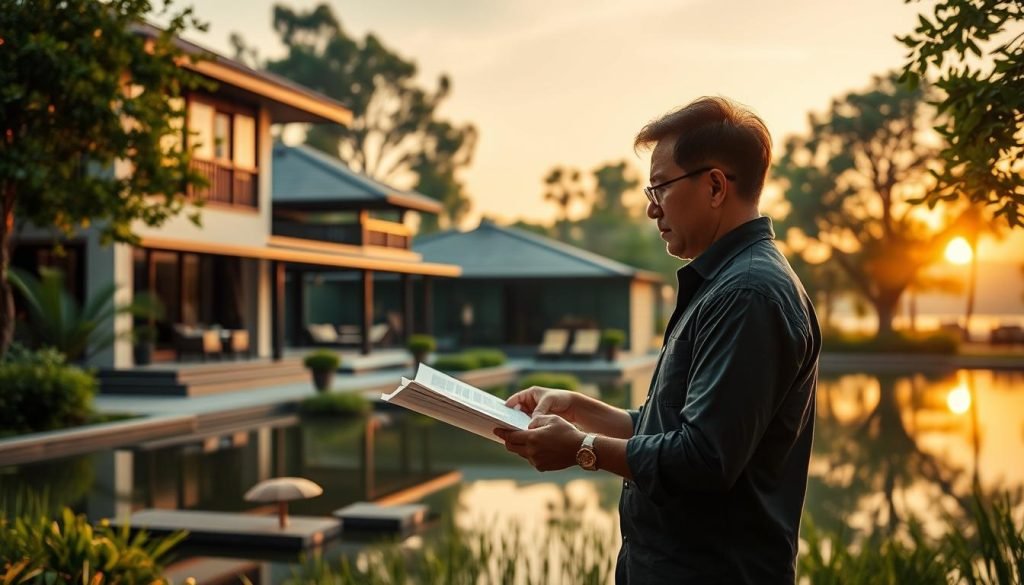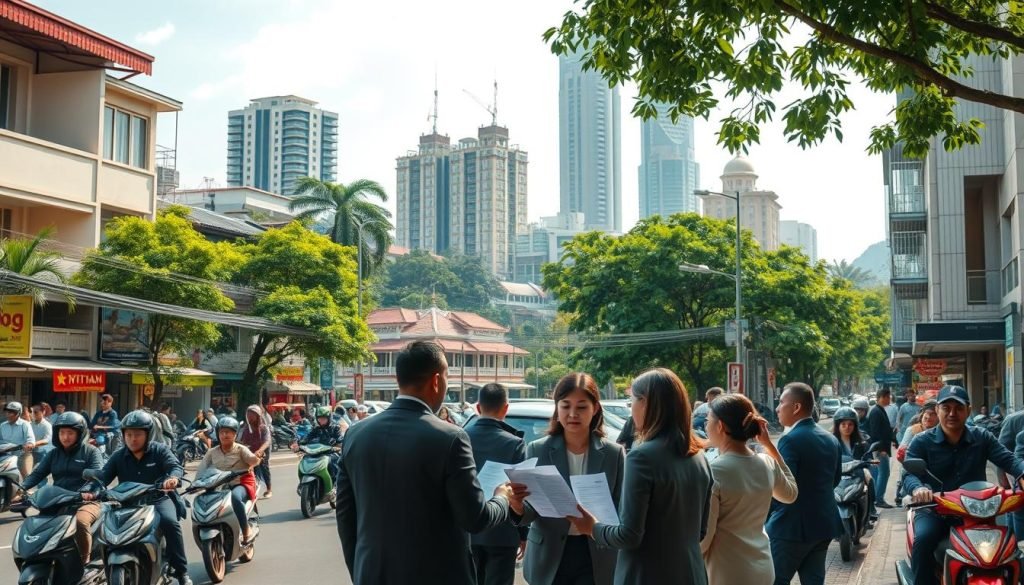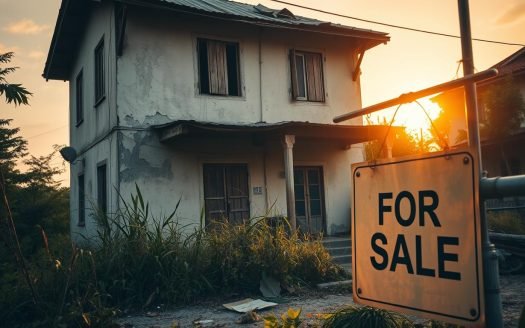How to Buy Property in Vietnam: A Step-by-Step Guide

As an expat, investing in Vietnamese real estate can seem scary. This is because of the unfamiliar laws and procedures. But, with the right help, you can get through this easily.
You’re starting by learning the legal needs and the steps to purchasing a property in Vietnam. Foreigners can own property here, but there are some rules.
To make your purchase go well, it’s key to know the laws about owning property and the registration steps. This guide will show you the important steps. It will make buying a property in Vietnam easy for you.
Key Takeaways
- Understand the legal requirements for buying property in Vietnam as a foreigner.
- Learn the step-by-step process of purchasing a property.
- Familiarize yourself with the laws governing property ownership.
- Navigate the registration process efficiently.
- Ensure a successful transaction with the right guidance.
Understanding Vietnam’s Property Ownership Laws for Foreigners
As a foreigner, knowing Vietnam’s property laws is key to a successful buy. Vietnam lets foreigners own certain properties, but there are rules and limits to know.
Foreigners can own buildings on land in Vietnam, but not the land itself. The lease for land is usually 50 to 70 years. This means you can own the property but must lease the land. US citizens face the same rules as other foreigners, so following these is important when buying in Vietnam.
Legal Rights and Limitations for US Citizens
US citizens have the same rights and limits as other foreigners in Vietnam. You can buy apartments in commercial projects and separate houses in some areas, following the rules. This includes getting a valid visa and registering the property in your name.
Key rights for US citizens include:
- Owning apartments and houses in designated areas
- Entering into a lease agreement for the land
- Registering the property in your name
But, there are also limits:
- You cannot own agricultural land
- There may be restrictions on the number of properties you can own
- You must comply with visa requirements and other legal obligations
Types of Properties Available to Foreign Buyers
Foreign buyers, including US citizens, can buy different types of properties in Vietnam. These include:
- Apartments in commercial housing projects
- Separate houses in certain areas designated by the government
When buying property in Vietnam, it’s important to work with trusted developers and legal advisors. This ensures you follow all rules and your purchase is safe.
By understanding Vietnam’s property laws, you can better navigate the property purchase process. This helps you make smart choices when you buy property in Vietnam.
How to Buy Property in Vietnam: Requirements and Eligibility
Foreign buyers need to know the requirements and eligibility to buy property in Vietnam. The process has several steps and documents to make it smooth.
Essential Documentation for US Buyers
US citizens must have a passport and visa to buy property in Vietnam. The visa type depends on your stay’s purpose and length. A temporary residence visa or residential visa is best for property buyers.
You also need a Tax Identification Number (TIN) from the Vietnamese tax authorities. It’s for tax purposes and to complete the purchase.

Financial Requirements and Banking Considerations
Foreign buyers must meet financial requirements, like opening a local bank account in Vietnam. This is for transferring funds and paying for the property. You must follow regulations on foreign currency transactions.
It’s wise to talk to a local bank or financial advisor. They can explain banking procedures and fees.
Tax Implications for American Property Owners
As an American property owner in Vietnam, you face taxes like Value-Added Tax (VAT) and Personal Income Tax (PIT). Knowing these taxes is key to avoid problems.
Consult a tax professional. They can help you follow Vietnamese and US tax laws. This is important for your US tax obligations.
Step-by-Step Process for Property Acquisition
Buying property in Vietnam has several key stages for foreign buyers. Knowing these steps is key for a smooth transaction.
Finding and Evaluating Possible Properties
Your search starts with finding the right property. Look at location, price, and condition. Vietnam has many properties, from city apartments to beach villas.
It’s important to research the local market and think about the long-term implications of your investment. A good real estate agent can offer valuable insights.

Conducting Due Diligence and Legal Checks
After finding a property, do thorough checks and legal reviews. Verify the property’s ownership and check for debts or liens. Make sure it meets local regulations.
“Due diligence is a critical step in the property buying process. It helps to mitigate risks and ensure that the transaction is smooth and legally sound.”
A reliable legal team can help you understand Vietnamese property law. They ensure your rights as a buyer are protected.
Negotiating Terms and Preparing the Purchase Agreement
After due diligence, negotiate the sale terms with the seller. Agree on the purchase price, payment terms, and conditions of sale.
The purchase agreement should clearly outline the agreed terms. It’s wise to have a legal expert draft it to protect your interests.
| Key Elements | Description |
|---|---|
| Purchase Price | The agreed-upon price for the property. |
| Payment Terms | The schedule and method of payment. |
| Conditions of Sale | Any contingencies that must be met before the sale is finalized. |
Completing the Transaction and Registering Ownership
The last step is to complete the transaction and register the property in your name. You’ll need to submit documents and pay fees.
After successful registration, you’ll get the property certificate. This confirms your ownership. Make sure all documents are correct to avoid problems later.
By following these steps and working with experienced professionals, you can confidently buy property in Vietnam.
Overcoming Common Challenges for US Investors
Vietnam’s property market is full of opportunities, but US investors face unique hurdles. You’ll need to deal with a different legal system, local customs, and managing properties from afar. These challenges are not faced by local buyers.
Navigating Language and Cultural Barriers
The language barrier is a big challenge. Vietnamese is the official language, and English is not widely spoken. To overcome this, work with a local real estate agent who speaks English. They can guide you through the market, find properties, and negotiate prices.
Cultural differences also play a role. In Vietnam, building relationships is key. Understanding and respecting local customs can help you build trust and make transactions smoother.
Building a Reliable Local Support Team
To invest in Vietnamese property successfully, you need a reliable local team. This team should include a good real estate agent, a lawyer, and possibly a property manager. They will help you navigate the process and ensure your rights are protected.
- A real estate agent can find properties and guide you through the buying process.
- A lawyer ensures your rights are protected and you follow all legal rules.
- A property manager handles daily tasks like maintenance and tenant management if you rent out your property.
Managing Property from Abroad and Repatriation of Funds
Managing your property from abroad can be tough, but there are ways to make it easier. Consider hiring a property management company for tasks like maintenance and rent collection. This way, your investment can keep earning income even when you’re not there.
Another important issue is repatriating funds. Vietnam has rules for moving money out of the country. A financial advisor or a bank experienced in international transactions can help you follow these rules and move your money efficiently.
Conclusion
You now know how to buy property in Vietnam. This includes understanding laws and the purchase process. With the right help, you can get the property you want in Vietnam.
When you buy property, you have ongoing duties. These include managing your property and sending money back home. Knowing this helps you enjoy owning property in Vietnam. You might see the value go up and earn rental income.
To make buying property easy, work with trusted real estate agents and lawyers. They know Vietnam’s property market well. Their knowledge will help you overcome any problems during the process.
FAQ
What are the legal requirements for buying property in Vietnam as a foreigner?
Foreign buyers must follow Vietnam’s property laws. You can own buildings or structures but not the land. You’ll need a valid visa and to register the property.
What types of properties can US citizens buy in Vietnam?
US citizens can buy apartments in commercial projects and separate houses in some areas. These must follow certain regulations.
What documentation is required for US buyers to purchase property in Vietnam?
You’ll need a valid passport and visa. You must also open a local bank account and pay taxes on the property.
What are the tax implications for American property owners in Vietnam?
You’ll face value-added tax (VAT) and personal income tax (PIT) on your property in Vietnam.
How do I navigate the property acquisition process in Vietnam?
First, find and evaluate properties. Then, do legal checks and negotiate terms. Lastly, register ownership with the authorities.
What are the common challenges faced by US investors when buying property in Vietnam?
Language and cultural barriers can be tough. But, a reliable local team can help. This includes a real estate agent, lawyer, and property manager.
How can I manage my property in Vietnam from abroad?
Repatriating funds and following local rules can be tricky. A good local team can make it easier.
Can I own property in Vietnam if I don’t live there?
Yes, you can own property in Vietnam even if you don’t live there. But, you must follow the rules and manage it from abroad.





